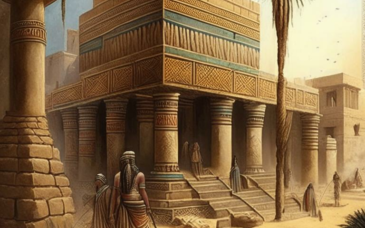The United States is home to a rich and diverse musical heritage that has had a profound influence on global music. From the early days of blues and jazz to the contemporary sounds of hip-hop and electronic dance music, American music is a reflection of the country's cultural diversity and historical evolution. This article explores the journey of American music, highlighting key genres and their impact on the world.
Early Beginnings: Blues and Jazz
The early 20th century saw the rise of blues and jazz, two genres that would lay the foundation for much of American music. Blues originated in the African American communities of the Deep South, characterized by its melancholic melodies and lyrical themes of hardship and resilience. Pioneers like Robert Johnson and Bessie Smith became icons of the genre, influencing countless musicians who followed.
Jazz, which emerged in New Orleans, brought a new level of musical sophistication and improvisation. Legends such as Louis Armstrong, Duke Ellington, and Ella Fitzgerald transformed jazz into a major cultural force. The genre's emphasis on improvisation and complex rhythms paved the way for future musical innovations.
The Rock 'n' Roll Revolution
The 1950s marked the advent of rock 'n' roll, a genre that combined elements of blues, country, and rhythm and blues. Artists like Elvis Presley, Chuck Berry, and Little Richard brought rock 'n' roll to mainstream audiences with their energetic performances and rebellious spirit. The genre's emphasis on youth and individuality resonated with the post-war generation, making it a defining sound of the era.
The Transformative 1960s and 1970s
The 1960s and 1970s were periods of profound musical and cultural transformation. The British Invasion, led by bands like The Beatles and The Rolling Stones, significantly influenced American rock music. Psychedelic rock, with its experimental sounds and countercultural themes, gained popularity through bands like The Doors and Jefferson Airplane.
Motown Records, founded by Berry Gordy in Detroit, played a crucial role in shaping the sound of soul music. Artists such as Marvin Gaye, Stevie Wonder, and Diana Ross and the Supremes became household names, bridging racial divides and leaving an indelible mark on popular music.
The Rise of Hip-Hop and Pop
The late 1970s and early 1980s saw the emergence of hip-hop, a genre that originated in the Bronx, New York City. Hip-hop artists like Grandmaster Flash, Run-D.M.C., and Public Enemy used their music to address social and political issues, creating a powerful voice for marginalized communities. The genre's innovative use of sampling, rapping, and DJing redefined music production and performance.
Simultaneously, pop music continued to evolve, with artists like Michael Jackson and Madonna pushing the boundaries of what was possible in music and performance. Their groundbreaking music videos and global appeal set new standards for the music industry, influencing generations of artists.
Contemporary Sounds: A Melting Pot of Genres
Today, American music is a vibrant mix of genres and styles. Electronic dance music (EDM), country, indie rock, hip-hop, and pop coexist and flourish, reflecting the nation's cultural diversity. Artists like Beyoncé, Kendrick Lamar, Taylor Swift, and Billie Eilish continue to innovate and push the boundaries of music, creating sounds that resonate with global audiences.
Digital platforms and streaming services have revolutionized the music industry, giving independent artists unprecedented opportunities to reach listeners worldwide. This democratization of music has led to an even richer and more diverse musical landscape, with new voices and genres constantly emerging.
For more in-depth exploration of American music history and its various genres, visit Root Hog Music.
Conclusion
The evolution of American music is a testament to the country's dynamic and ever-changing cultural landscape. From the soulful strains of blues and jazz to the energetic beats of hip-hop and electronic music, American music has continually inspired and influenced the world. As we look to the future, the rich tapestry of American music promises to keep evolving, reflecting the ongoing story of the United States.


